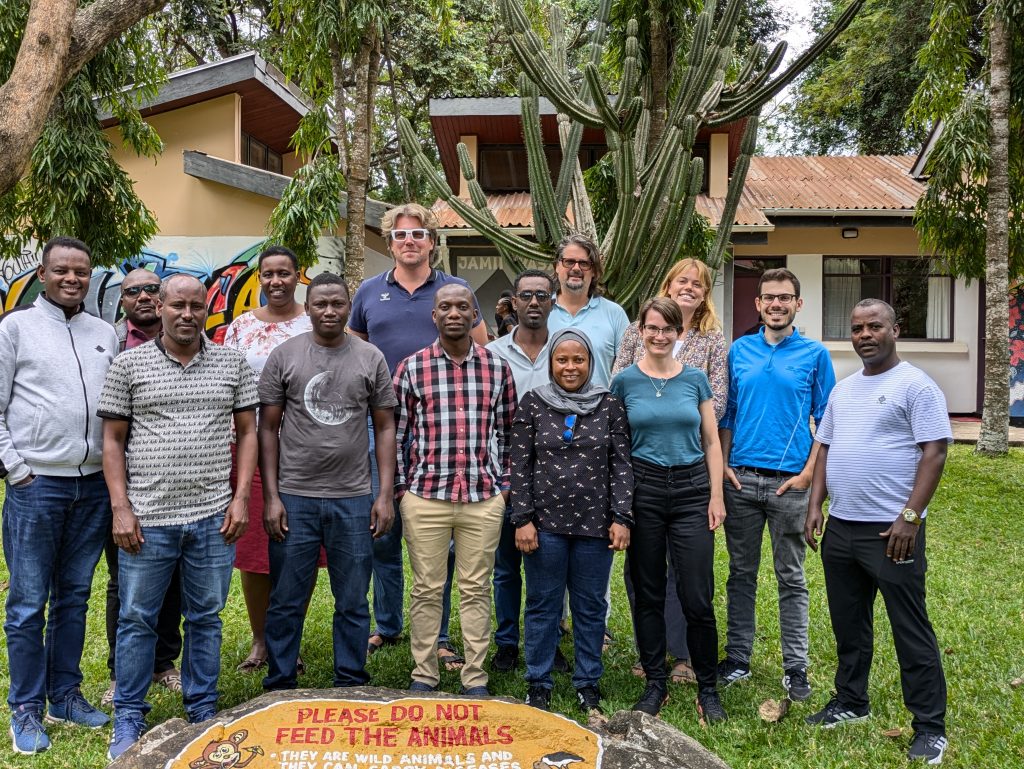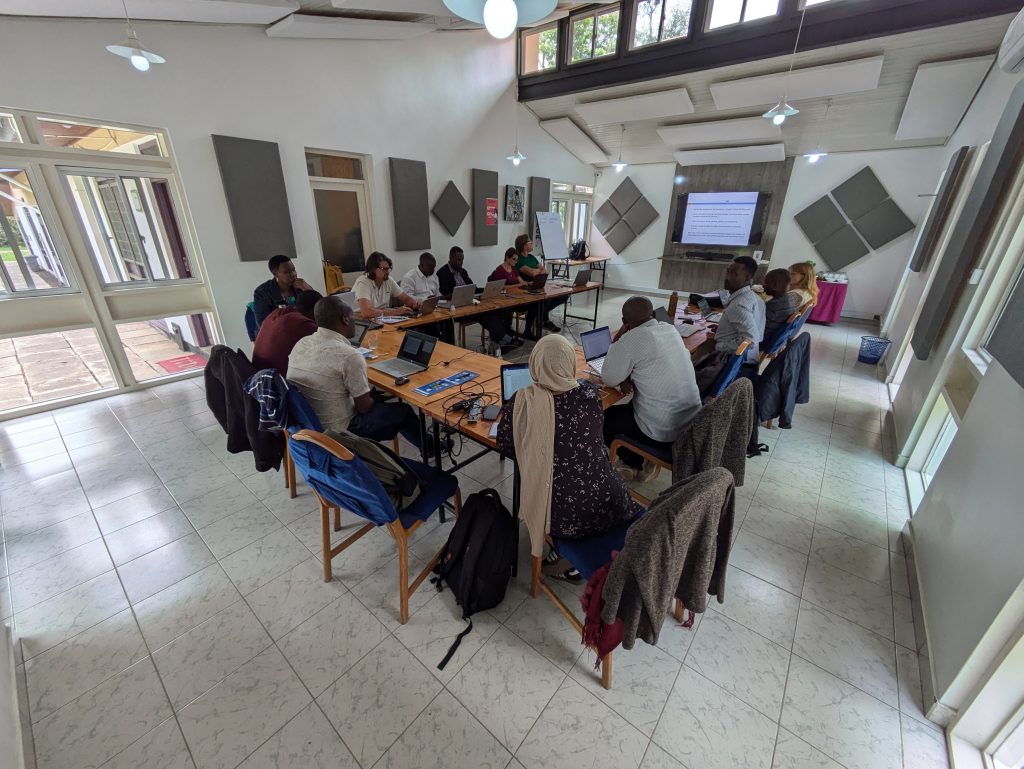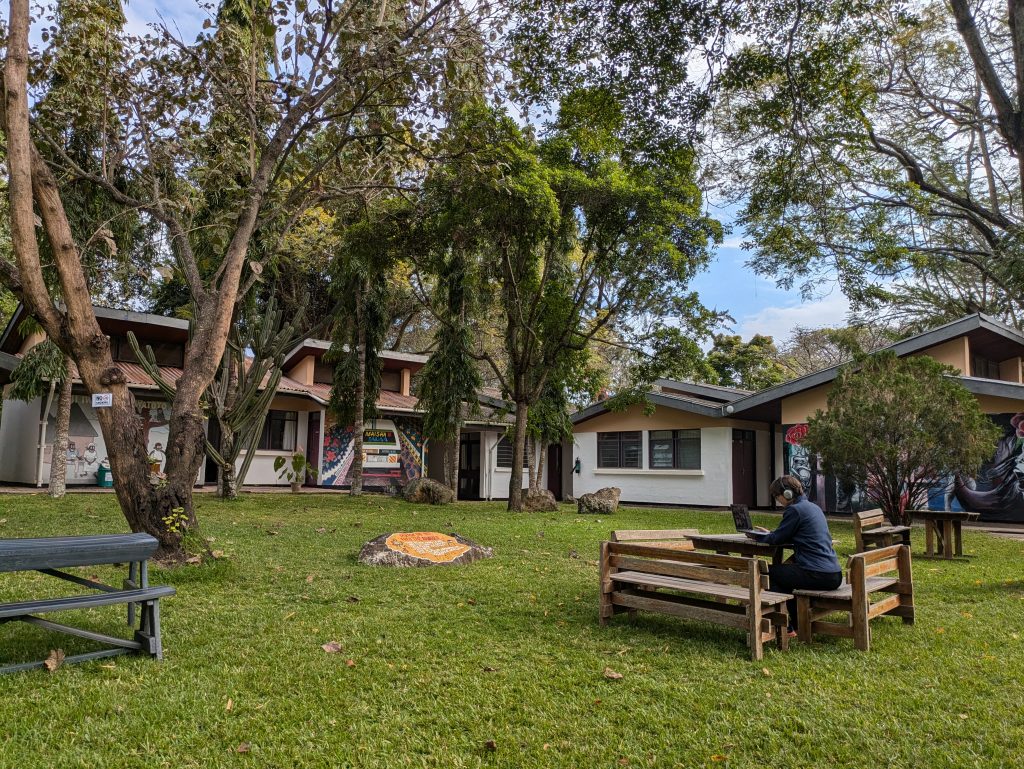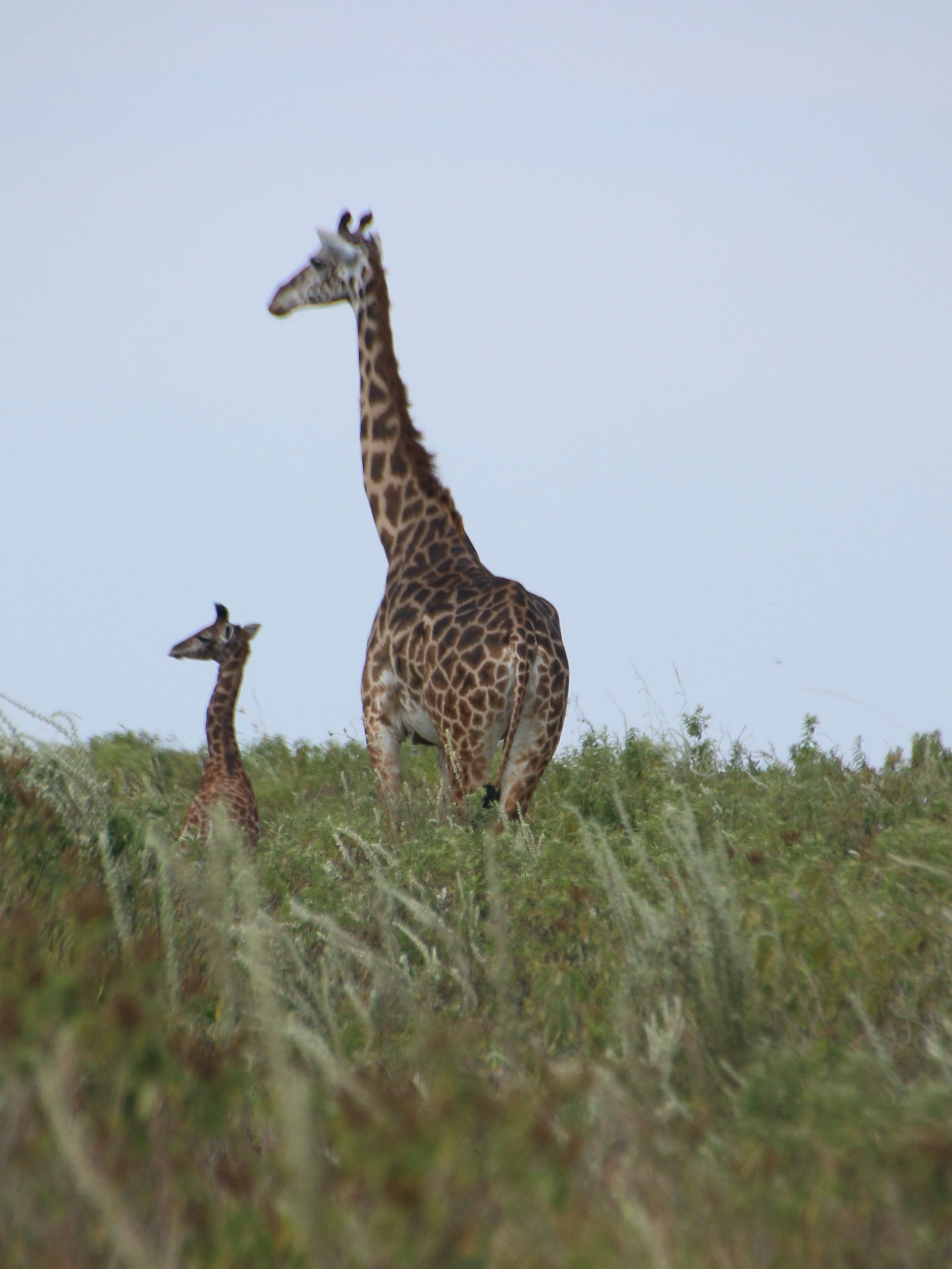From August 25th to 31st, the project’s research team met at the MS TCDC Conference Centre in Usa River, Tanzania, bringing together fourteen researchers from Dar es Salaam University, Jimma University, Copenhagen Business School, and ESADE Business School. This meeting marked the first in-person collaboration after two years of online meetings since the project’s launch in March 2022.

From August 25th to 31st, the PACSMAC (Paradoxes of Climate Smart Coffee) project’s research team met at the MS TCDC Conference Centre in Usa River, Tanzania, bringing together fourteen researchers from Dar es Salaam University, Jimma University, Copenhagen Business School, and ESADE Business School. This meeting marked the first in-person collaboration after two years of online meetings since the project’s launch in March 2022.

The main objective of this week was to advance article writing and submission. With substantial data already collected from extensive fieldwork, including extensive smallholder farmer interviews and surveys in Tanzania and Ethiopia, the team’s focus shifted to analysis and generating meaningful output. Each team member presented their ongoing research, covering a wide range of debates that revolved around the impact of climate change on the Tanzanian and Ethiopian coffee sectors. These presentations touched upon areas such as the use of pesticides in coffee farming, the business implications of climate change in the coffee industry, and the empowerment of female coffee farmers.
The multidisciplinary composition of the team, drawing from diverse academic fields such as Geography, Economics, Agronomy, and Development Studies provided a rich source of inspiration and feedback. The exchange led to valuable cross-fertilization between quantitative and qualitative projects and between the two national contexts. For some, this meant refining and narrowing down their research focus, while for others it resulted in the development of new perspectives on the coffee sector. Towards the end of the week, we held brainstorming sessions to explore ways of disseminating our findings on both global and local levels, as well as academic and non-academic communities.

The MS TCDC Conference Centre offered an ideal environment for focused work. The team shifted between plenary discussions, small group meetings, and individual writing sessions in the beautiful garden facilities. Beyond this, the week provided opportunities for team bonding over shared meals, Tanzanian coffee, yoga, and dancing which helped maintain a balanced schedule.


The week in Usa River marked a significant milestone for the PACSMAC project, strengthening our collaborative efforts and establishing a strong foundation for the next phases of our research. As we move forward, our focus for the remaining year and a half will include publishing our findings as well as planning upcoming conferences—both attending and hosting. The success of this intensive week was driven by the team’s motivation and open-mindedness. Asante sana to all team members for their dedication!